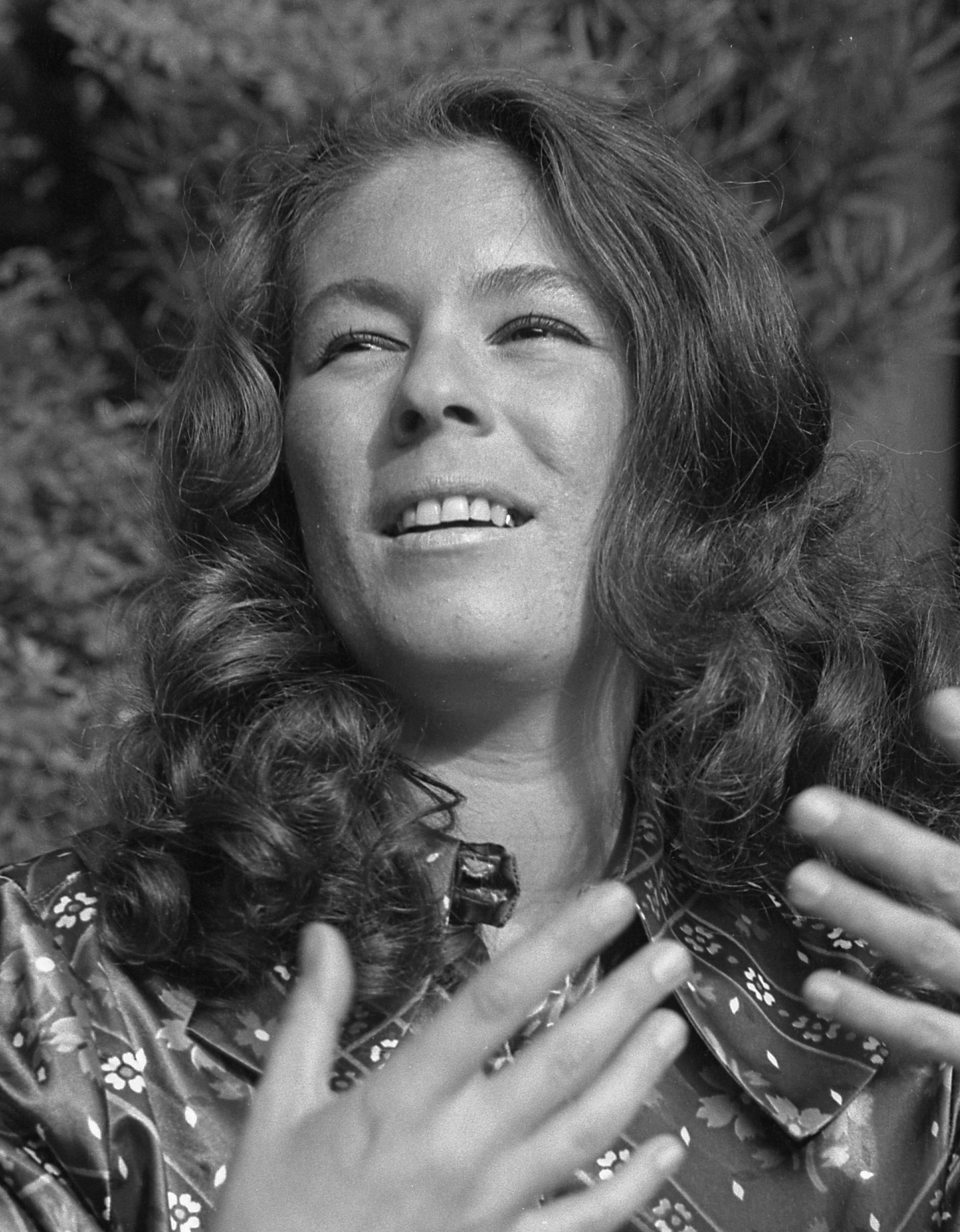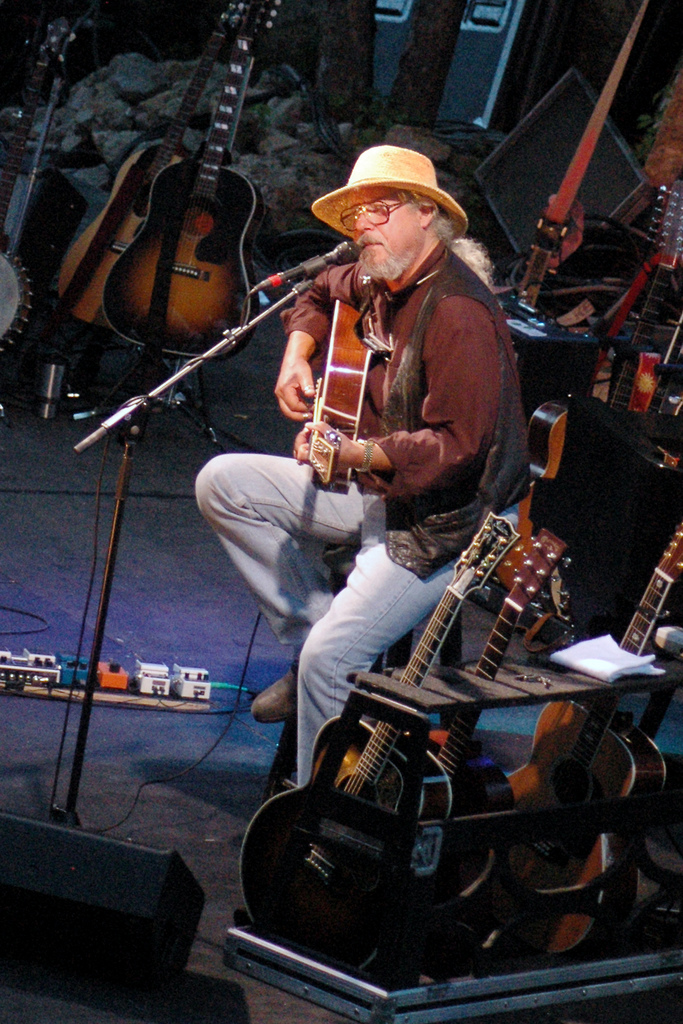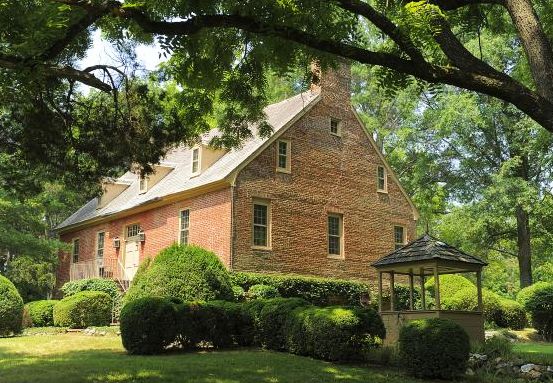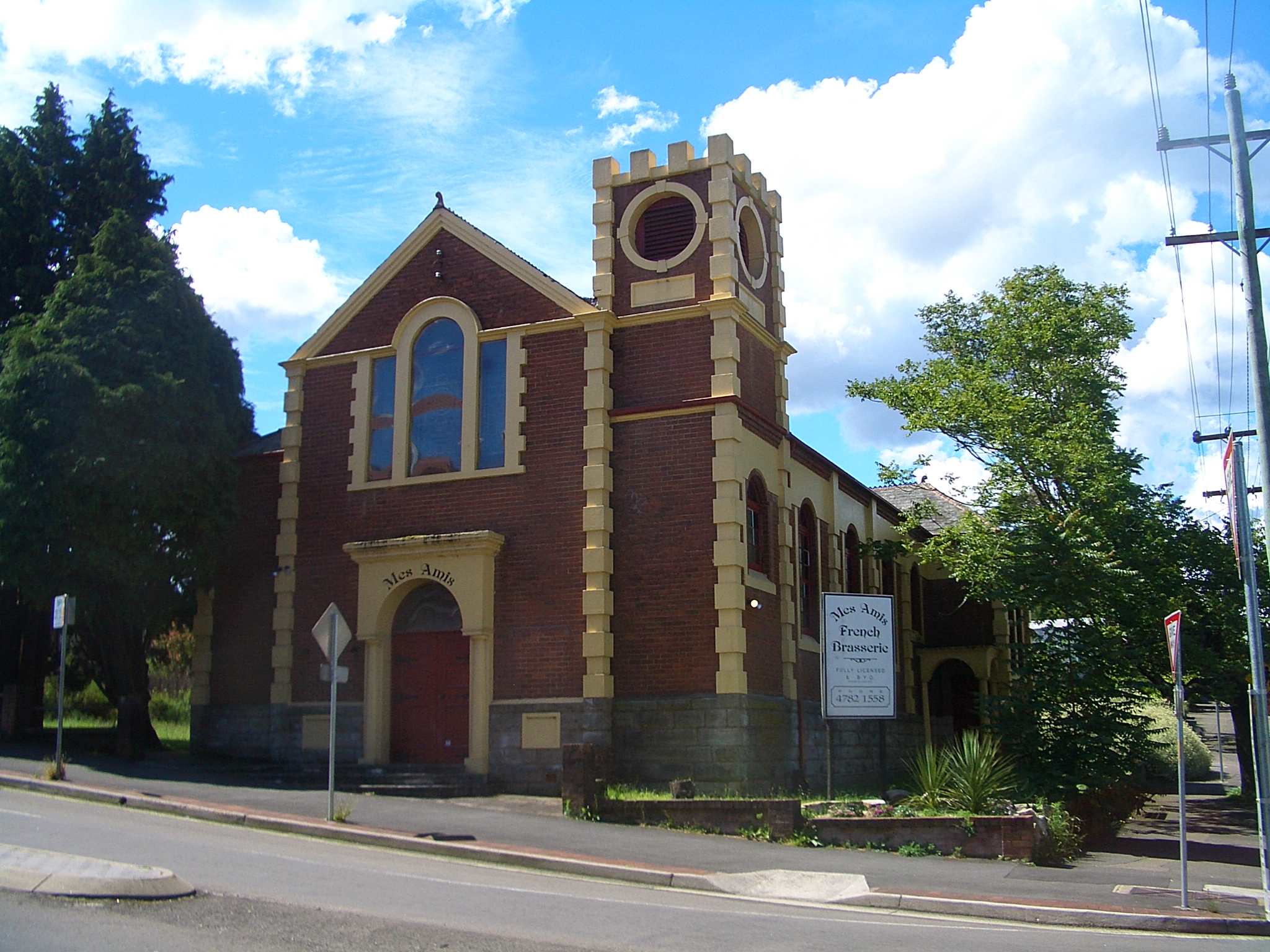|
Alice's Restaurant
"Alice's Restaurant Massacree", commonly known as "Alice's Restaurant", is a satirical talking blues song by singer-songwriter Arlo Guthrie, released as the title track to his 1967 debut album '' Alice's Restaurant''. The song is a deadpan protest against the Vietnam War draft, in the form of a comically exaggerated but largely true story from Guthrie's own life: while visiting acquaintances in Stockbridge, Massachusetts, he is arrested and convicted of dumping trash illegally, which later endangers his suitability for the military draft. The title refers to a restaurant owned by one of Guthrie's friends, artist Alice Brock; although she is a minor character in the story, the restaurant plays no role in it aside from being the subject of the chorus and the impetus for Guthrie's visit. The song was an inspiration for the 1969 film also named ''Alice's Restaurant'', which took numerous liberties with the story. The work has become Guthrie's signature song and he has periodical ... [...More Info...] [...Related Items...] OR: [Wikipedia] [Google] [Baidu] |
Alice's Restaurant (film)
'' Alice's Restaurant '' is a 1969 American comedy film directed by Arthur Penn. It is an adaptation of the 1967 folk song "Alice's Restaurant Massacree", originally written and sung by Arlo Guthrie. The film stars Guthrie as himself, with Pat Quinn as Alice Brock and James Broderick as Ray Brock. Penn, who resided in the story's setting of Stockbridge, Massachusetts, co-wrote the screenplay in 1967 with Venable Herndon after hearing the song, shortly after directing ''Bonnie & Clyde''.Cummings, Paula (November 21, 2017)Interview: Arlo Guthrie Carries On Thanksgiving Traditions And Fulfills Family Legacy ''NYS Music''. Retrieved October 25, 2018. ''Alice's Restaurant'' was released on August 19, 1969, a few days after Guthrie appeared at the Woodstock Festival. A soundtrack album for the film was also released by United Artists Records. The soundtrack includes a studio version of the title song, which was originally divided into two parts (one for each album side); a 1998 CD reiss ... [...More Info...] [...Related Items...] OR: [Wikipedia] [Google] [Baidu] |
Arlo Guthrie
Arlo Davy Guthrie (born July 10, 1947) is an American folk singer-songwriter. He is known for singing songs of protest against social injustice, and storytelling while performing songs, following the tradition of his father, Woody Guthrie. Guthrie's best-known work is his debut piece, " Alice's Restaurant Massacree", a satirical talking blues song about 18 minutes in length that has since become a Thanksgiving anthem. His only top-40 hit was a cover of Steve Goodman's " City of New Orleans". His song "Massachusetts" was named the official folk song of the state, in which he has lived most of his adult life. Guthrie has also made several acting appearances. He is the father of four children, who have also had careers as musicians. Early life Guthrie was born in the Coney Island neighborhood of Brooklyn, the son of the folk singer and composer Woody Guthrie and dancer Marjorie Mazia Guthrie. He is the fifth, and oldest surviving, of Woody Guthrie's eight children; two older h ... [...More Info...] [...Related Items...] OR: [Wikipedia] [Google] [Baidu] |
Piedmont Blues
Piedmont blues (also known as East Coast, or Southeastern blues) refers primarily to a guitar style, which is characterized by a fingerpicking approach in which a regular, alternating thumb bass string rhythmic pattern supports a syncopated melody using the treble strings generally picked with the fore-finger, occasionally others. The result is comparable in sound to ragtime or stride piano styles. Blues researcher Peter B. Lowry coined the term, giving co-credit to fellow folklorist Bruce Bastin. The Piedmont style is differentiated from other styles, particularly the Mississippi Delta blues, by its ragtime-based rhythms. Origins The basis of the Piedmont style began with the older "frailing" or "framming" guitar styles that may have been universal throughout the South, and was also based, at least to some extent, on formal "parlor guitar" techniques as well as earlier banjo playing, string band, and ragtime. What was particular to the Piedmont was that a generation of pla ... [...More Info...] [...Related Items...] OR: [Wikipedia] [Google] [Baidu] |
Mason Locke Weems
Mason Locke Weems (October 11, 1759 – May 23, 1825), usually referred to as Parson Weems, was an American minister, evangelical bookseller and author who wrote (and rewrote and republished) the first biography of George Washington immediately after his death. Some of the popular apocryphal stories about Washington can be traced to Weems, including the cherry tree tale ("I cannot tell a lie, I did it with my little hatchet"). That bestseller depicted Washington's virtues and was intended to provide a morally instructive tale for the youth of the young nation. Early life Mason Weems was born on October 11, 1759, in Anne Arundel County, Maryland, the youngest of nineteen children. His family traced their ancestry to Scotland. When he was ten years old, his parents sent him away to study at the Kent County Free School in Chestertown, Maryland (which later became Washington College). During the 1770s, Weems studied medicine in Edinburgh, then in the 1780s after a religious conversi ... [...More Info...] [...Related Items...] OR: [Wikipedia] [Google] [Baidu] |
William Obanhein
William J. Obanhein (October 19, 1924 – September 11, 1994), also known as Officer Obie, was the chief of police for the town of Stockbridge, Massachusetts. He was a member of the police force there for 34 years, 1951 to 1985. He is fairly well known for his appearances in popular culture. Obanhein was the "Officer Obie" mentioned in Arlo Guthrie's 1967 talking blues song "Alice's Restaurant". Obanhein later said that some of the details in the song were not completely true; he said he had not handcuffed Guthrie during the arrest and said they removed the seat from the toilet in Guthrie's cell to prevent theft, not to prevent suicide. Obanhein later would note that he would not have arrested Guthrie had the amount of garbage been smaller (he would have picked up the garbage himself) [...More Info...] [...Related Items...] OR: [Wikipedia] [Google] [Baidu] |
Volkswagen Type 2
The Volkswagen Type 2, known officially (depending on body type) as the Transporter, Kombi or Microbus, or, informally, as the Bus (US), Camper (UK) or Bulli (Germany), is a forward control light commercial vehicle introduced in 1950 by the German automaker Volkswagen as its second car model. Following – and initially deriving from – Volkswagen's first model, the Type 1 (Beetle), it was given the factory designation Type 2. As one of the forerunners of the modern cargo and passenger vans, the Type 2 gave rise to forward control competitors in the United States in the 1960s, including the Ford Econoline, the Dodge A100, and the Chevrolet Corvair 95 Corvan, the latter adapting the rear-engine configuration of the Corvair car in the same manner in which the VW Type 2 adapted the Type 1 layout. European competition included the 1947–1981 Citroën H Van, the 1959–1980 Renault Estafette (both FF layout), the 1952–1969 semi forward-control Bedford CA and the 1953–1965 ... [...More Info...] [...Related Items...] OR: [Wikipedia] [Google] [Baidu] |
Deconsecrated
Deconsecration, also called secularization, is the act of removing a religious blessing from something that had been previously consecrated by a minister or priest of that religion. The practice is usually performed on churches or synagogues to be rendered to non-religious ( secular) use or demolished. See also * Consecration * Desacralization of knowledge * Desecration * Secularization (church property) Secularization is the confiscation of church property by a government, such as in the suppression of monasteries. The term is often used to specifically refer to such confiscations during the French Revolution and the First French Empire in the ..., the confiscation of church property by a government References {{religion-stub Christian worship and liturgy ... [...More Info...] [...Related Items...] OR: [Wikipedia] [Google] [Baidu] |
Thanksgiving (United States)
Thanksgiving is a federal holiday in the United States celebrated on the fourth Thursday of November. It is sometimes called American Thanksgiving (outside the United States) to distinguish it from the Canadian holiday of the same name and related celebrations in other regions. It originated as a day of thanksgiving and harvest festival, with the theme of the holiday revolving around giving thanks and the centerpiece of Thanksgiving celebrations remaining a Thanksgiving dinner. The dinner traditionally consists of foods and dishes indigenous to the Americas, namely turkey, potatoes (usually mashed or sweet), stuffing, squash, corn (maize), green beans, cranberries (typically in sauce form), and pumpkin pie. Other Thanksgiving customs include charitable organizations offering Thanksgiving dinner for the poor, attending religious services, and watching television events such as Macy's Thanksgiving Day Parade and NFL football games. Thanksgiving is regarded as the begin ... [...More Info...] [...Related Items...] OR: [Wikipedia] [Google] [Baidu] |
Alice Brock, 1969
Alice may refer to: * Alice (name), most often a feminine given name, but also used as a surname Literature * Alice (''Alice's Adventures in Wonderland''), a character in books by Lewis Carroll * ''Alice'' series, children's and teen books by Phyllis Reynolds Naylor * ''Alice'' (Hermann book), a 2009 short story collection by Judith Hermann Computers * Alice (computer chip), a graphics engine chip in the Amiga computer in 1992 * Alice (programming language), a functional programming language designed by the Programming Systems Lab at Saarland University * Alice (software), an object-oriented programming language and IDE developed at Carnegie Mellon * Alice mobile robot * Artificial Linguistic Internet Computer Entity, an open-source chatterbot * Matra Alice, a home micro-computer marketed in France * Alice, a brand name used by Telecom Italia for internet and telephone services Video games * '' Alice: An Interactive Museum'', a 1991 adventure game * ''American McGee's Alice' ... [...More Info...] [...Related Items...] OR: [Wikipedia] [Google] [Baidu] |
Jingle
A jingle is a short song or tune used in advertising and for other commercial uses. Jingles are a form of sound branding. A jingle contains one or more hooks and meaning that explicitly promote the product or service being advertised, usually through the use of one or more advertising slogans. Ad buyers use jingles in radio and television commercials; they can also be used in non-advertising contexts to establish or maintain a brand image. Many jingles are also created using snippets of popular songs, in which lyrics are modified to appropriately advertise the product or service. History The Wheaties advertisement, with its lyrical hooks, was seen by its owners as extremely successful. According to one account, General Mills had seriously planned to end production of Wheaties in 1929 on the basis of poor sales. Soon after the song "Have you tried Wheaties?" aired in Minnesota, however, sales spiked there. Of the 53,000 cases of Wheaties breakfast cereal sold, 40,000 wer ... [...More Info...] [...Related Items...] OR: [Wikipedia] [Google] [Baidu] |
Massacre
A massacre is the killing of a large number of people or animals, especially those who are not involved in any fighting or have no way of defending themselves. A massacre is generally considered to be morally unacceptable, especially when perpetrated by a group of political actors against defenseless victims. The word is a loan of a French term for "butchery" or "carnage". A "massacre" is not necessarily a "crime against humanity". Other terms with overlapping scope include war crime, pogrom, mass killing, mass murder, and extrajudicial killing. Etymology The modern definition of ''massacre'' as "indiscriminate slaughter, carnage", and the subsequent verb of this form, derive from late 16th century Middle French, evolved from Middle French ''"macacre, macecle"'' meaning "slaughterhouse, butchery". Further origins are dubious, though may be related to Latin ''macellum'' "provisions store, butcher shop". The Middle French word ''macecr'' "butchery, carnage" is first reco ... [...More Info...] [...Related Items...] OR: [Wikipedia] [Google] [Baidu] |
Ozark Mountains
The Ozarks, also known as the Ozark Mountains, Ozark Highlands or Ozark Plateau, is a physiographic region in the U.S. states of Missouri, Arkansas, Oklahoma and the extreme southeastern corner of Kansas. The Ozarks cover a significant portion of northern Arkansas and most of the southern half of Missouri, extending from Interstate 40 in central Arkansas to Interstate 70 in central Missouri. There are two mountain ranges in the Ozarks: the Boston Mountains of Arkansas and the St. Francois Mountains of Missouri. Buffalo Lookout, the highest point in the Ozarks, is located in the Boston Mountains. Geologically, the area is a broad dome with the exposed core in the ancient St. Francois Mountains. The Ozarks cover nearly , making it the most extensive highland region between the Appalachians and Rockies. Together with the Ouachita Mountains, the area is known as the U.S. Interior Highlands. The Salem Plateau, named after Salem, Missouri, makes up the largest geologic area of ... [...More Info...] [...Related Items...] OR: [Wikipedia] [Google] [Baidu] |








